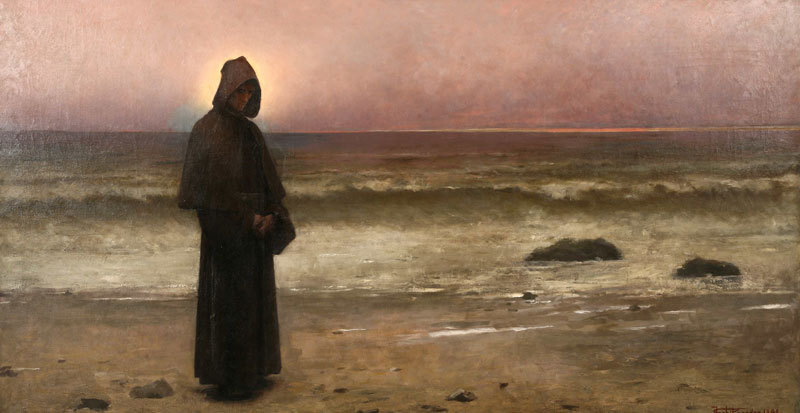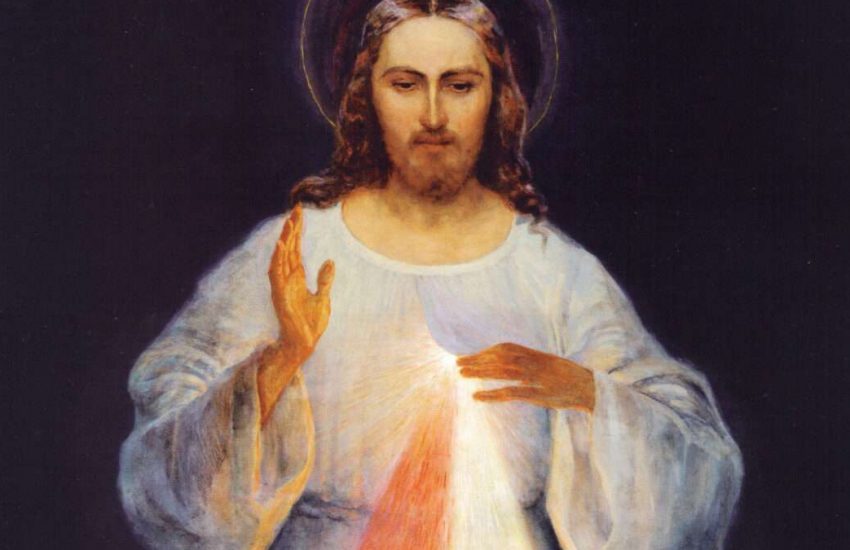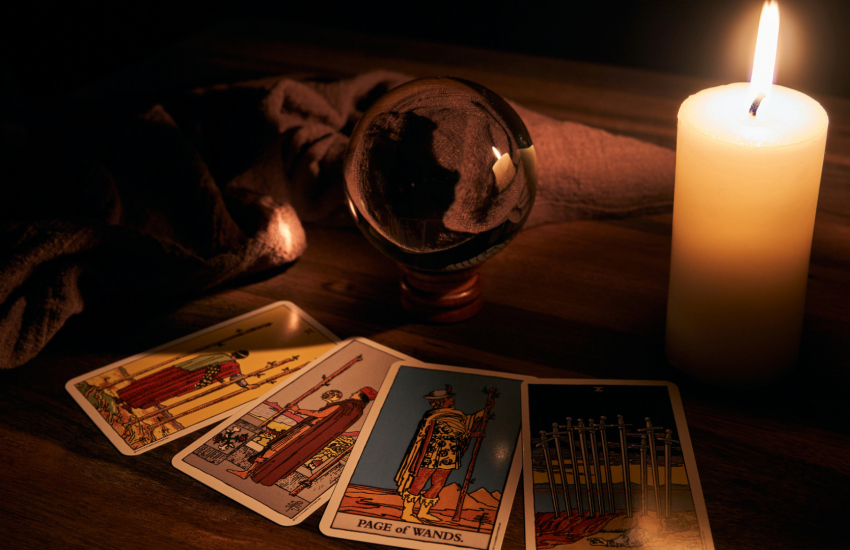Choosing Love
21st Sunday in Ordinary Time (B)
When we talk about man being made in the image and likeness of God, we don’t mean that we look like God in any physical way. We mean rather that we share in certain divine attributes. Specifically, God has a rational intellect and a free will. So do we. In this we are like God.
Sin weakens these capacities within us; grace strengthens them. This is important to point out because sometimes people get the wrong idea that joining the Church means giving up our freedom. The opposite is in fact true. God wants to make us more free, because by growing in freedom the image of God shines more clearly in us. So God will never violate our freedom, even if we choose to reject him.
To Whom Shall We Go?
We see this in this Sunday’s scripture readings — God offers choices. In the gospel (Jn 6:60-69), Jesus has just finished giving his very difficult and rather scandalous-sounding teaching that we must eat his flesh and drink his blood to gain eternal life. Imagine how that sounded to these first century Jews, who had strict dietary regulations against drinking any sort of blood, let alone human blood.
It’s no wonder that even the disciples said, “This saying is hard; who can accept it?” We read in John’s gospel that, “many of his disciples returned to their former way of life and no longer accompanied him.” People left Jesus because of his teaching on the Eucharist. And Jesus respected their decision to leave. It doesn’t mean Jesus wanted them to leave. But he let them make their choice, because the one thing Jesus will never do is to violate anyone’s freedom.
Then Jesus turns to his chosen Twelve and asks them to make a choice: “Do you also want to leave?”
Peter, head of the Apostles, responded with some of the most profound words in the scriptures; words that we should take to heart any time we struggle or doubt. Peter does not understand what Jesus means by eating his flesh and drinking his blood. But he chooses to trust Jesus. He replies, “Master, to whom shall we go? You have the words of eternal life.” Even in the midst of his confusion, Peter makes a choice. He chooses to stay with Jesus.
Decide Today Whom You Will Serve
Perhaps Peter was mindful of Joshua and the choice that he gave to the people of Isreal, related in this Sunday’s first reading:
“…choose today whom you will serve, the gods your ancestors served beyond the River or the gods of the Amorites in whose country you are dwelling. As for me and my household, we will serve the Lord” (Jos 24:15).
Joshua lays it out plainly for the people. Choose to serve the God of Israel or choose to serve other foreign gods. But you have to make a choice — serve the true God or a false god. You can’t do both.
We have the same choice today. We may not be tempted to serve the pagan gods of the Amorites (although nothing would surprise me). But we are tempted to serve other gods of our own making. A common fallacy is to remake God in our own image, according to our ideas and desires, so that we can serve this pseudo-God instead. Another choice is to cast off the idea of God entirely, in which case we end up serving our own appetites and ambitions. Our desires become our gods.
I can do what I want!
While modern society certainly values freedom, most of us have a distorted understanding of freedom. We value freedom as a good in and of itself, rather than as a necessary means to obtain what is good. Freedom, isolated from truth, goodness and beauty, means nothing. We can freely choose things that harm us. We can freely choose to drink ourselves to death. We can freely choose to cheat on our spouse. We can freely choose to tell a lie about someone. The fact that these things are chosen in freedom doesn’t make any of them good.
How many people do you know who are suffering right now because they have made poor choices? And perhaps they keep on making the same bad choices. Their choices have made them miserable, but they tell themselves, “At least I’m living the way I want. Nobody can tell me what to do. I’m in control of my own life.”
To that person, I say, you are right; you are in control of your own life. But is this really the life you choose? Just because you choose it, doesn’t make it good. We can freely choose hell. In fact, that’s the only way to get there. And by the way, that’s also the only way to get to heaven. We have to make a choice. As Joshua said, “Choose today whom you will serve.”
Freedom to Love
Why would God make us this way? Why give us the freedom to choose evil? To choose things that would harm us? To choose to reject God? Why not just make us so that we’d always love him and choose what is good no matter what?
It’s because love is impossible without freedom. Love not freely given is not love at all. Love says I give myself freely to you. I choose you. This is why the idea of a “soul mate” is so wrong. It suggests that there is one person out there whom we have no choice but to love, and who has no choice but to love us in return. That is simply false. Love is always a choice.
And in what may seem like irony, love also means choosing to place limits on our freedom. Saying “yes” to one thing means saying “no” to others. That’s how choices work. I want this and not that. If I spend my time playing video games, that’s not time spent studying. If I take this class, then I can’t take another class that meets at the same time. If I want to be a music education major, I can’t also be a nursing student.
This is most apparent in marriage. Saying “yes” to your spouse means saying “no” to all other romantic relationships. It may seem like we are losing freedom, but only in this way do we make ourselves free to be a total gift to the other. We freely say to the other, I give myself exclusively to you.
This is why St. Paul begins his beautiful treatise on marriage that we read in this Sunday’s second reading by telling husbands and wives to “be subordinate to one another” (Eph 5:21). Marriage is all about freely making yourself subject to the other. This only works if it is mutual. Otherwise one person dominates the other, and that is not love.
A Vulnerable God
As St. Paul reminds us, everything he says about marriage is “in reference to Christ and the Church” (Eph 5:32). The mutual and free self-gift of persons is exactly how God loves us. He has chosen to give himself to us and by so doing, makes himself vulnerable.
It may seem strange for us to think about God being vulnerable. Didn’t God make the universe? Isn’t God all-powerful? Isn’t he all-knowing? How can God be vulnerable, least of all to me?
God is vulnerable to us, because he has freely chosen to become so. God is vulnerable because he loves. By giving us free will, God has placed limits on himself. He will not violate our will. He gives us the power to say “No” to him, because only then could we say “Yes” to him freely.
In the Catholic Church, for a marriage to be considered valid, bride and groom must both freely consent. God is proposing marriage to us. Christ is the bridegroom and he is asking us to become his bride. You can say no. God will respect that, just like Jesus respected the decision of those who left him when he said they must eat his flesh and drink his blood.
Or you could say yes. You could choose to enter into the mystery of this divine marriage and become one flesh with your Maker. You can hear the bridegroom say, “This is my body, which is given up for you,” and reply, “Amen. Yes. I accept. And I offer you my life in return.”
You can choose God.
You can choose love.
It’s your choice.



